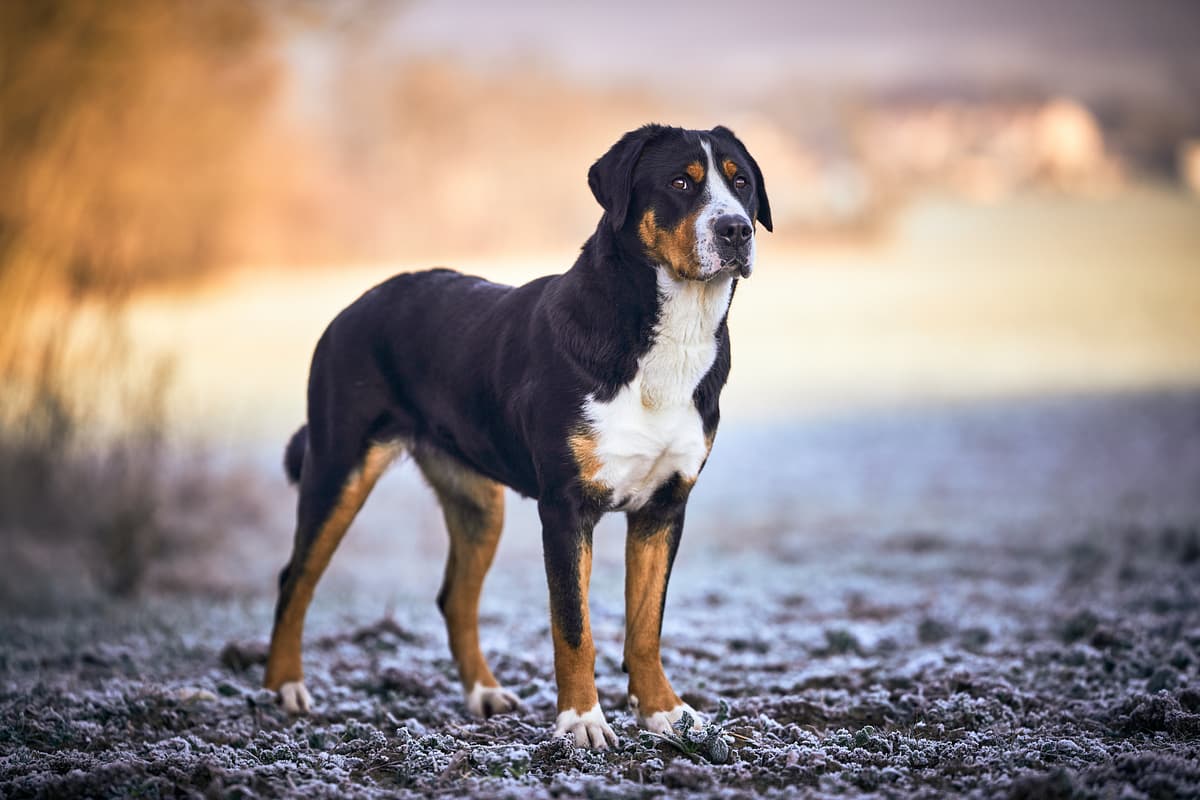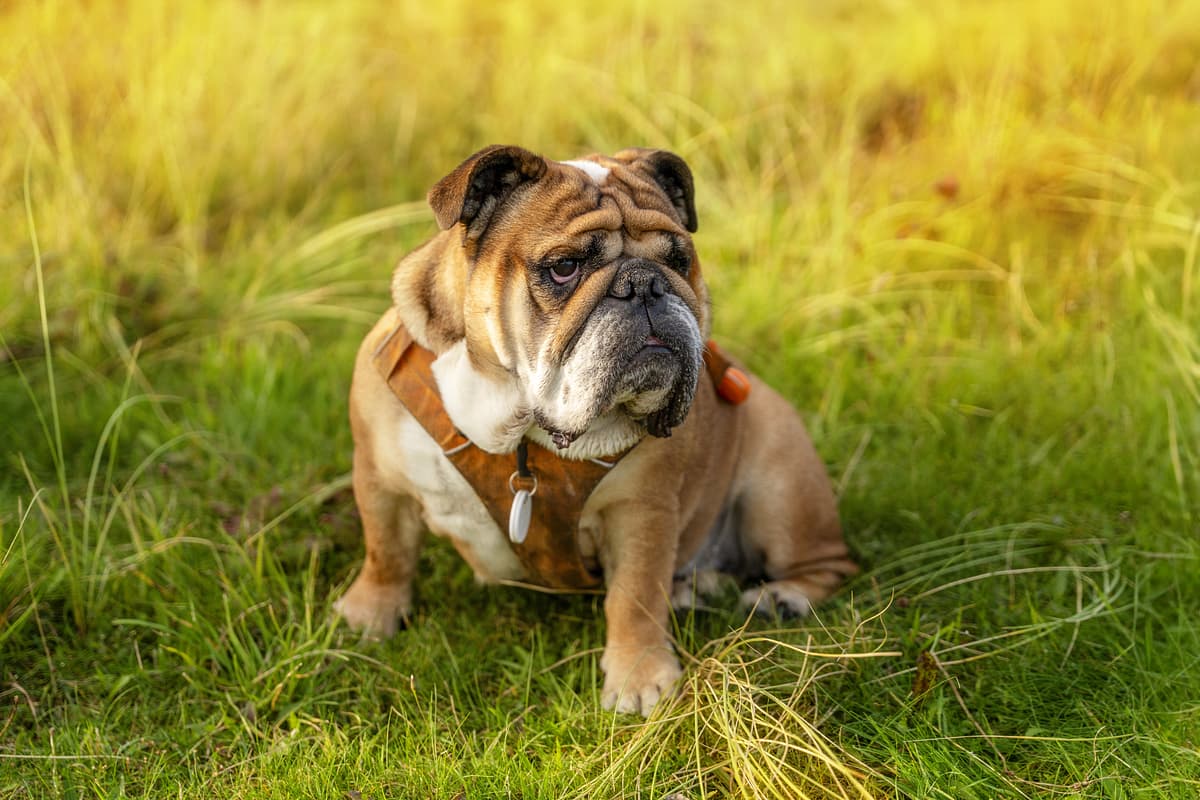Greater Swiss Mountain Dog vs English Bulldog
Discover the differences between Greater Swiss Mountain Dog and English Bulldog to make the best choice for your situation.
Try different breeds

Greater Swiss Mountain Dog
Strong, loyal, and affectionate, this breed thrives as a devoted family companion and reliable watchdog. Distinctive tricolor markings add to its striking, sturdy presence.

English Bulldog
Stocky, courageous, and affectionate, this breed charms with its wrinkled face and calm nature. Loyal and gentle, it thrives as a loving family companion.
Quick comparison
Large
54–63 kg
Double coat, dense
8–11 years
48–54 kg
Moderately active
Medium
23–25 kg
Short, smooth
8–10 years
18–23 kg
Low activity needs
Personality & behavior
Compare the personality traits and behavioral characteristics of both breeds.
Greater Swiss Mountain Dog
Warm and welcoming with family and strangers
Learns commands quickly, eager to please
Moderate exercise needs, not overly hyper
Enjoys games and interactive activities
Adjusts to change with some initial hesitation
English Bulldog
Affectionate and gentle with family and children
Learns basic commands with some patience
Prefers lounging over vigorous physical activity
Enjoys play but tires fairly quickly
Adjusts well to most living environments
Care needs
Exercise, grooming, and daily care requirements
Greater Swiss Mountain Dog
Hip dysplasia, elbow dysplasia
English Bulldog
Brachycephalic syndrome, skin fold infections
Suitability
How well each breed fits different living situations and families
Greater Swiss Mountain Dog
Challenging for beginners
Needs experienced training and strong leadership
Not apartment friendly
Large size and activity needs make apartments unsuitable
Highly suitable
Thrives with daily exercise and outdoor activities
Very family friendly
Gentle nature and patience suit homes with young children
Generally compatible
Usually gets along if socialized early with other pets
Not recommended
Dislikes being left alone and may develop separation anxiety
English Bulldog
Good option
Easygoing, low-maintenance nature suits owners with limited dog experience
Excellent fit
Moderate exercise needs and calm demeanor work well in small living spaces
Not ideal
Low stamina and breathing issues make them unsuited for high-activity lifestyles
Very suitable
Gentle, patient, and tolerant with young children when properly socialized
Usually compatible
Generally sociable but may need guidance with other pets, especially dogs
Not recommended
They struggle with long periods alone and are prone to separation anxiety
Breed strengths
What each breed excels at and their best qualities
Greater Swiss Mountain Dog
- Loyal to family and children
- Strong work ethic and stamina
- Tolerates cold weather very well
- Generally good-natured and calm
- Effective watchdog with alert instincts
English Bulldog
- Affectionate with family members
- Generally good with children
- Low exercise requirements
- Minimal grooming needs
- Adaptable to apartment living
Challenges & considerations
Potential challenges and considerations for each breed
Greater Swiss Mountain Dog
- Prone to hip and elbow dysplasia
- Needs ample daily exercise and space
- Can be stubborn during training
- High risk for bloat and gastric issues
- Sheds heavily, especially seasonally
English Bulldog
- Prone to respiratory problems
- High risk of overheating
- Susceptible to skin infections
- Can be stubborn during training
- Tends to drool frequently
Ready to choose your perfect breed?
Learn more about each breed or compare other breeds to find the perfect match for your lifestyle.
Discover more helpful tools
Make use of our other free tools to get the most out of your pet experience
